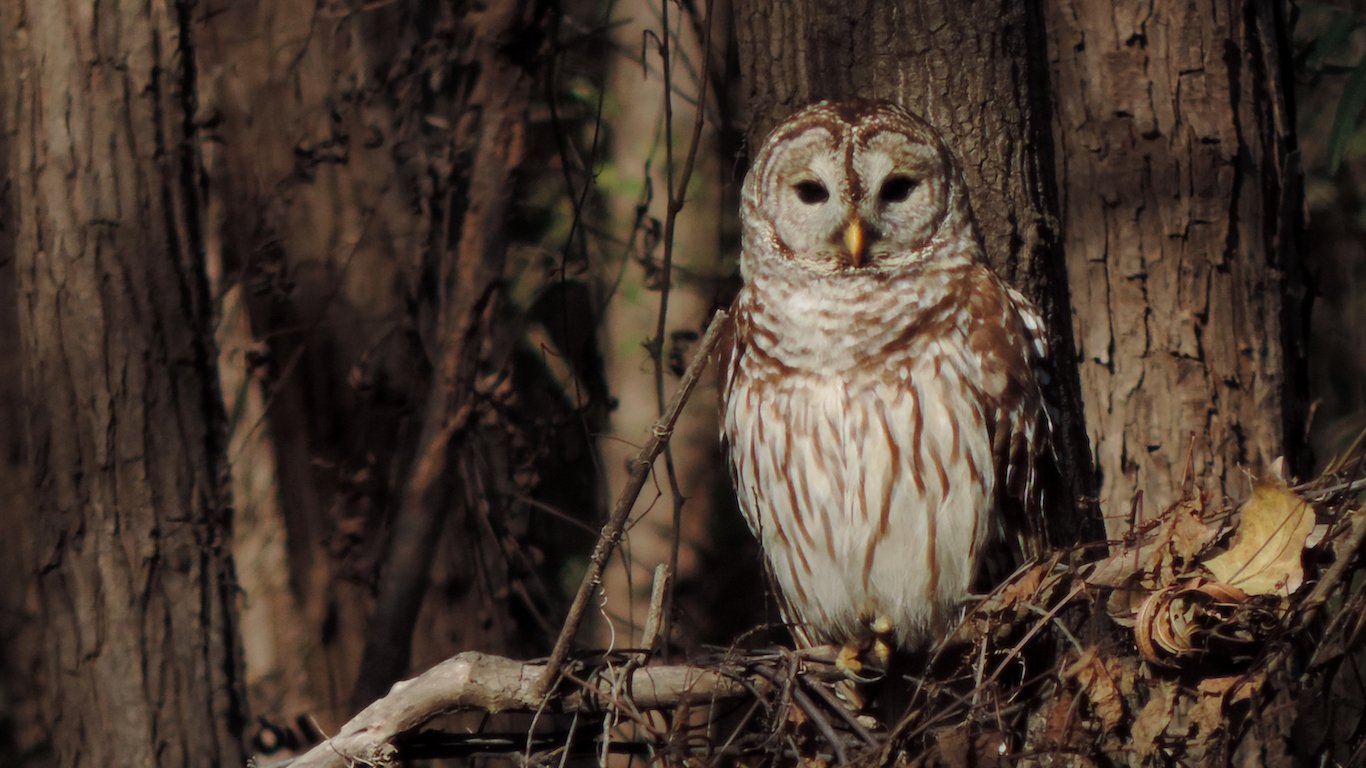Tell the truth. Do you knock on wood when you say or hope for something positive — knowing full well this is nothing but a superstition? We’ve put a man on the moon, cured diseases, and probed the mysteries of the atom. Yet our many myths, legends, and superstitions — some brought to this country by immigrants and slaves, and some originating here among Native Americans — remain part of our nation’s cultural heritage.
Superstitions are often baseless beliefs originating from fear or ignorance and are held by a particular group or people. Superstitions are thought to foretell or influence coming events. While we may know we have no control over the weather, traffic, winning the lottery, or helping our favorite team win, it doesn’t stop us from performing some ritual to affect an outcome.
As American society has become more enlightened, less fearful of the unknown, and more tolerant of other ethnic groups, we’ve jettisoned many of our darker beliefs and fears that are associated with superstitions. At the same time, we’ve lost some of the rich storytelling that embellishes our culture and connected us with traditions.
Even so, in 21st century America, certain superstitions persist. Stevie Wonder even wrote a hit song about how these curious beliefs can hold people back. With Halloween just around the corner, 24/7 Wall St. has compiled a list of superstitions that still prevail in each state or region. We drew on material from academic journals, digital libraries, and media sources to develop our list.
Click here to see every state’s local superstitions.
Click here to see our detailed findings and methodology.

Alabama
Football fans at the University of Alabama don’t sing “Rammer Jammer Yellow Hammer” until a Crimson Tide victory is certain. In the 11 seasons as head coach of the Tide, Nick Saban’s teams have won 87% of their games and five national championships.

Alaska
Do not bring bananas or flowers aboard a fishing boat as both will bring misfortune. Sailors don’t bring bananas because hundreds of years ago, the fruit was known to house deadly spiders that sickened and killed many crew members. Flowers aren’t allowed onboard either because funeral wreaths are made of them, which may suggest crew members are preparing for a death aboard.
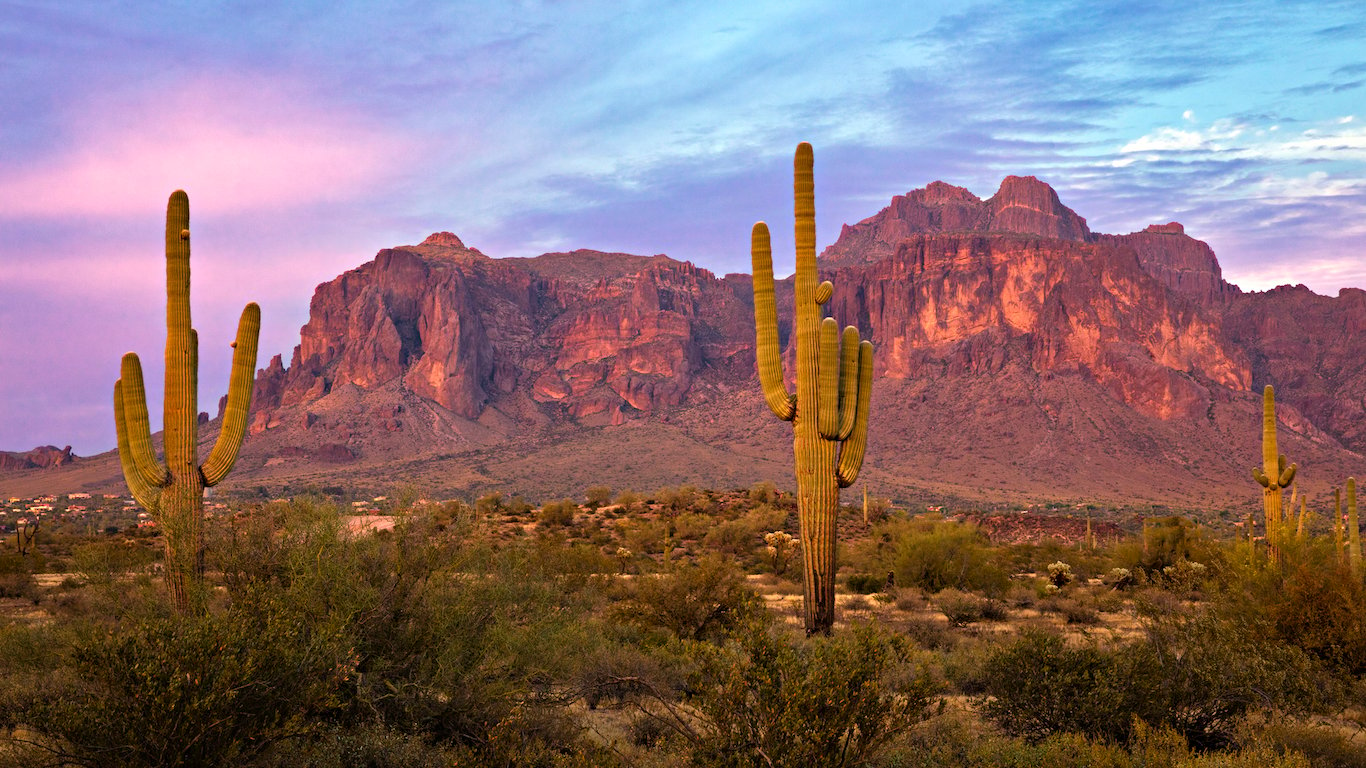
Arizona
Hikers disappear in the Superstition Mountains more than any other mountain range, according to George Johnston, president emeritus of the Superstition Mountain Museum. Johnston claims four to five hikers die in the mountain range every year.

Arkansas
People claim a demon lives in Hell’s Half Acre, which is near Hot Springs, and that animals and birds will not cross or fly near the area. Local people believed the area was an extinct volcano, while others thought it was an ancient Native American quarry.

California
Most superstitions go back to colonial times, however, this is a recent one. In California, if you make a wish as two Volkswagens are crossing an intersection, your wish will come true.

Colorado
Many superstitions involved human interactions with animals, and their consequences. In Colorado, if you kill a toad, your cow will produce bloody milk.

Connecticut
Grooming also figures into American superstitions. To comb one’s hair after dark is a sign of sickness.
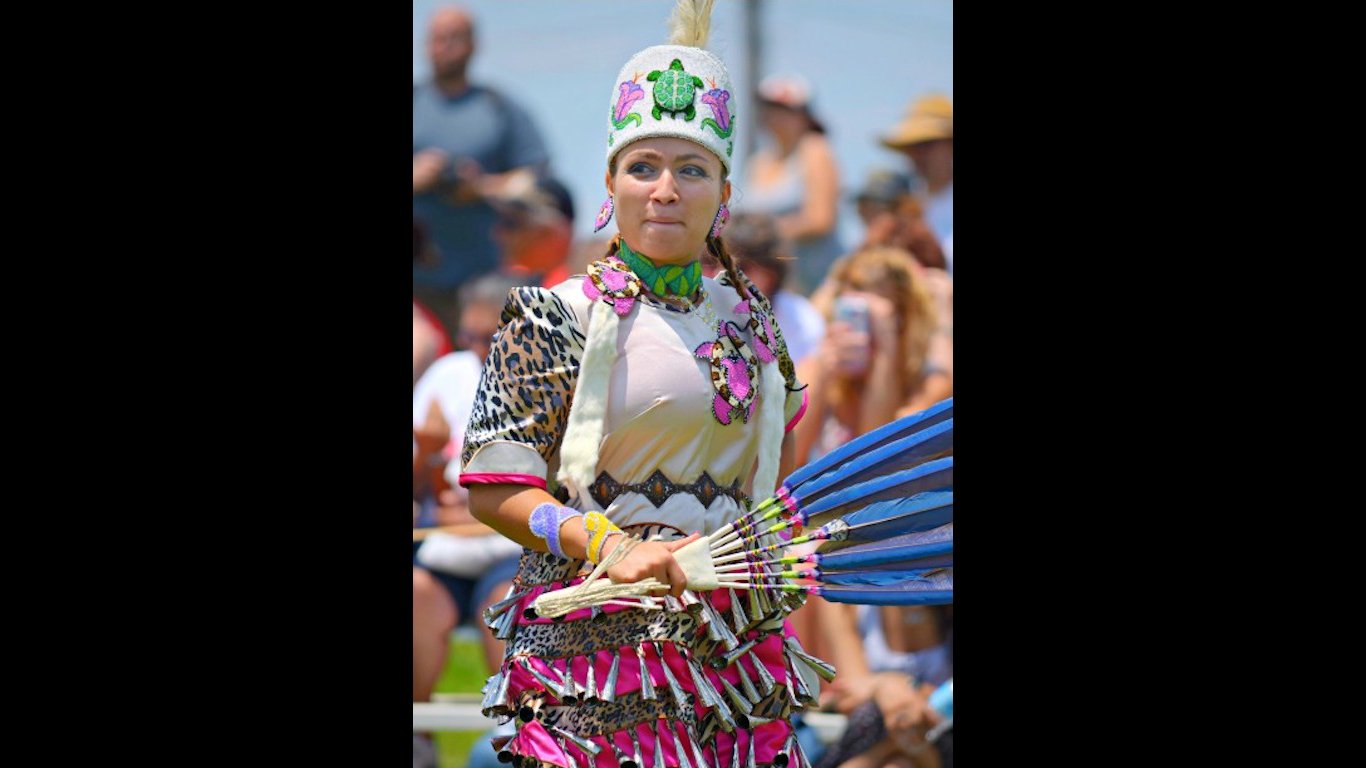
Delaware
The Nanticoke people living in Delaware in the early 20th century believed the seventh-born child held magic powers, understood the use of medicines, and could cast spells on people and animals.

Florida
Given Florida’s vulnerability to hurricanes, it’s not surprising that there are superstitions about those storms in the state. When a cow carries its tail upright, it’s a sign that a hurricane is coming.
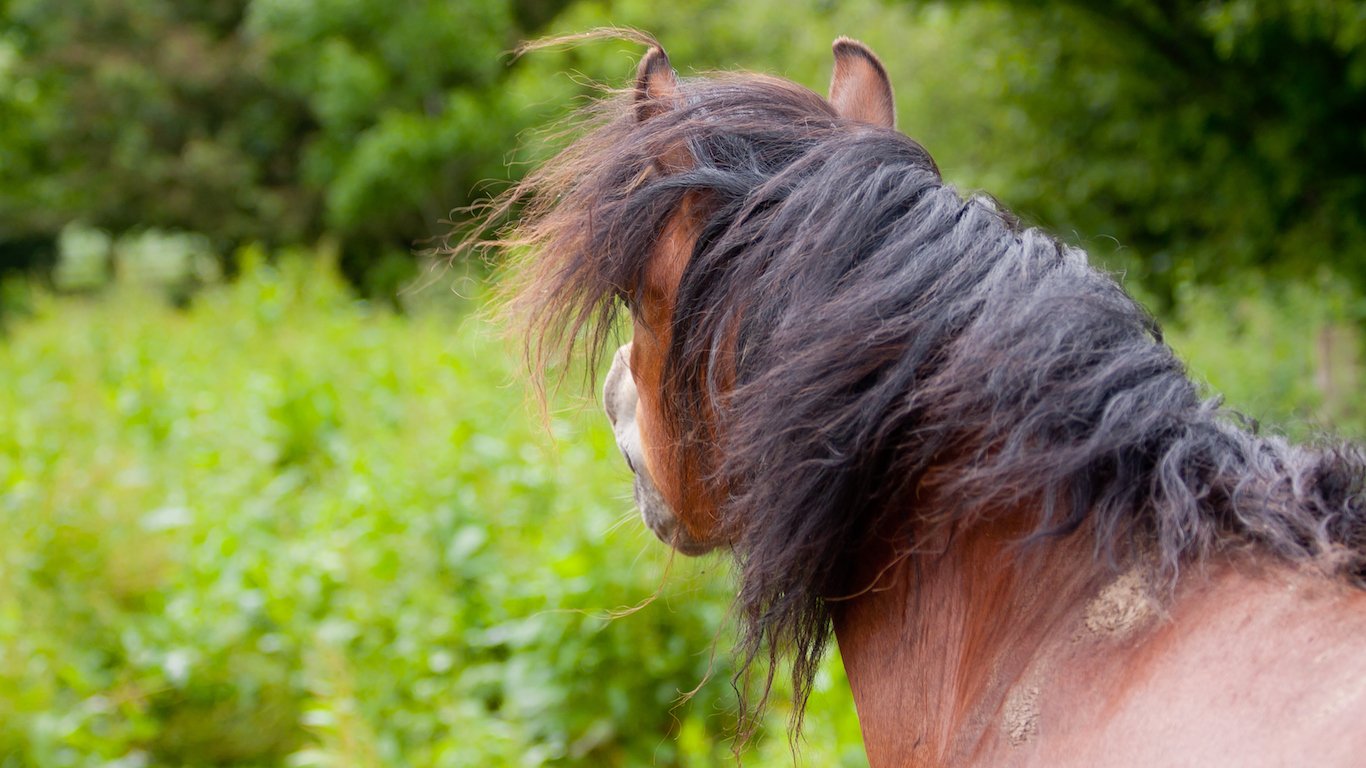
Georgia
If a horse’s mane is tangled, it’s a sign that a witch has been riding it. Little knots seen in a mane are called “witches’ stirrups.”

Hawaii
Don’t take a rock or sand from the beach, or a lava rock from a volcano, and away from Hawaii. You’ll be cursed by the fire goddess Pele, who plays a role in many superstitions in the island state.

Idaho
Spirit Lake got its name from a young man and woman from rival Native American tribes who fell in love. Because they were unable to wed, they tied their wrists together in a symbolic wedding ceremony and leaped off a cliff into the lake. People claim to see their spirits wafting across the lake in a canoe as sorrowful sounds fill the air.
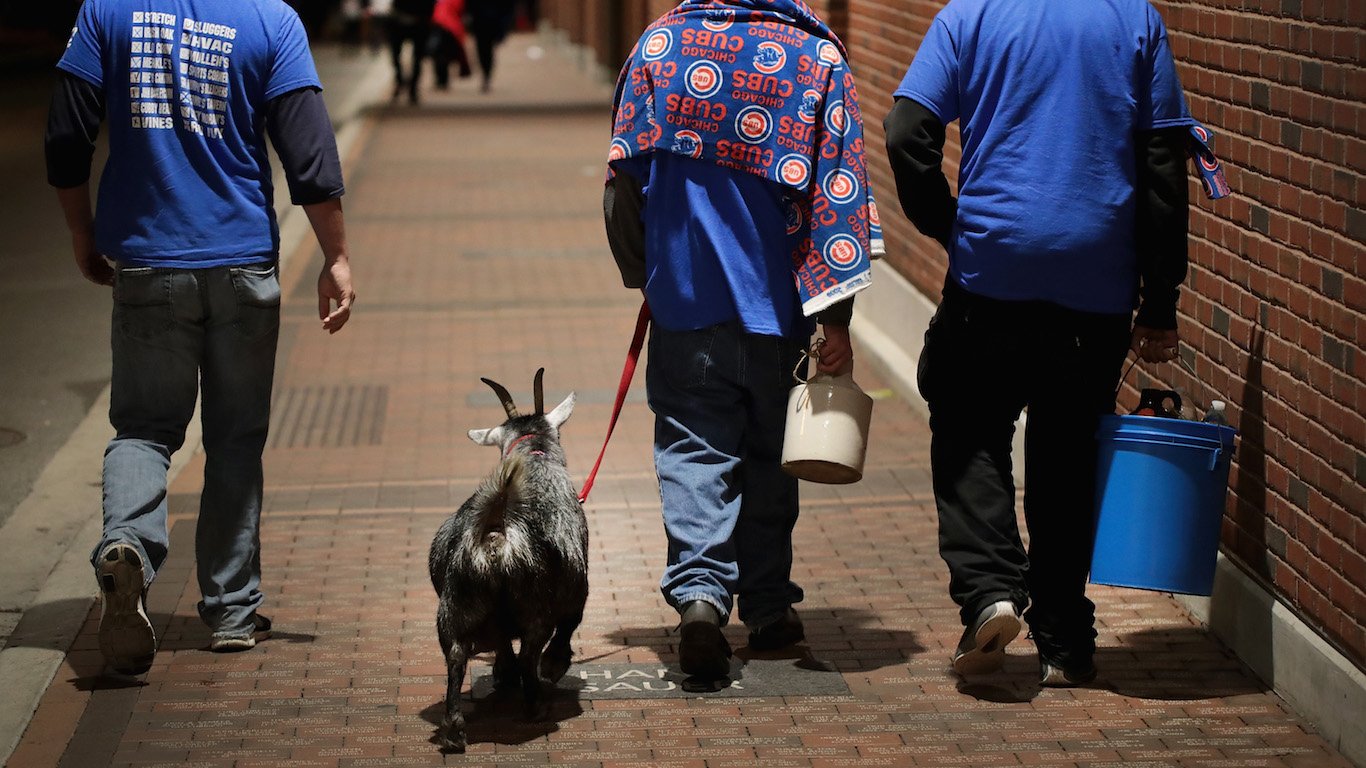
Illinois
The “Billy Goat Curse” was placed on the Chicago Cubs by tavern owner Billy Sianis after the Cubs prevented him from bringing a goat to Wrigley Field during the 1945 World Series. An incensed Sianis vowed the Cubs would never win a World Series as long as the goat was not allowed in. The “curse” held until 2016, when the Cubs won the World Series.

Indiana
In the Midwest, where livelihoods depend on the weather, women used to plant their squash and cucumber seed during the time period that corresponds with the third zodiac sign, Gemini, to assure a bountiful crop.

Iowa
People believe the angel statue at Oakland Cemetery in Iowa City turned black from its previous golden bronze color because of a woman’s infidelity, a reminder to people of the consequences of their actions. Among the superstitions connected with the statue: any girl who is kissed near the statue at night will die within six months.

Kansas
This superstition connects matrimony and food: Boil an egg, fill the space of the yolk with salt, go to bed, and whomever you dream about will be your future marriage partner.
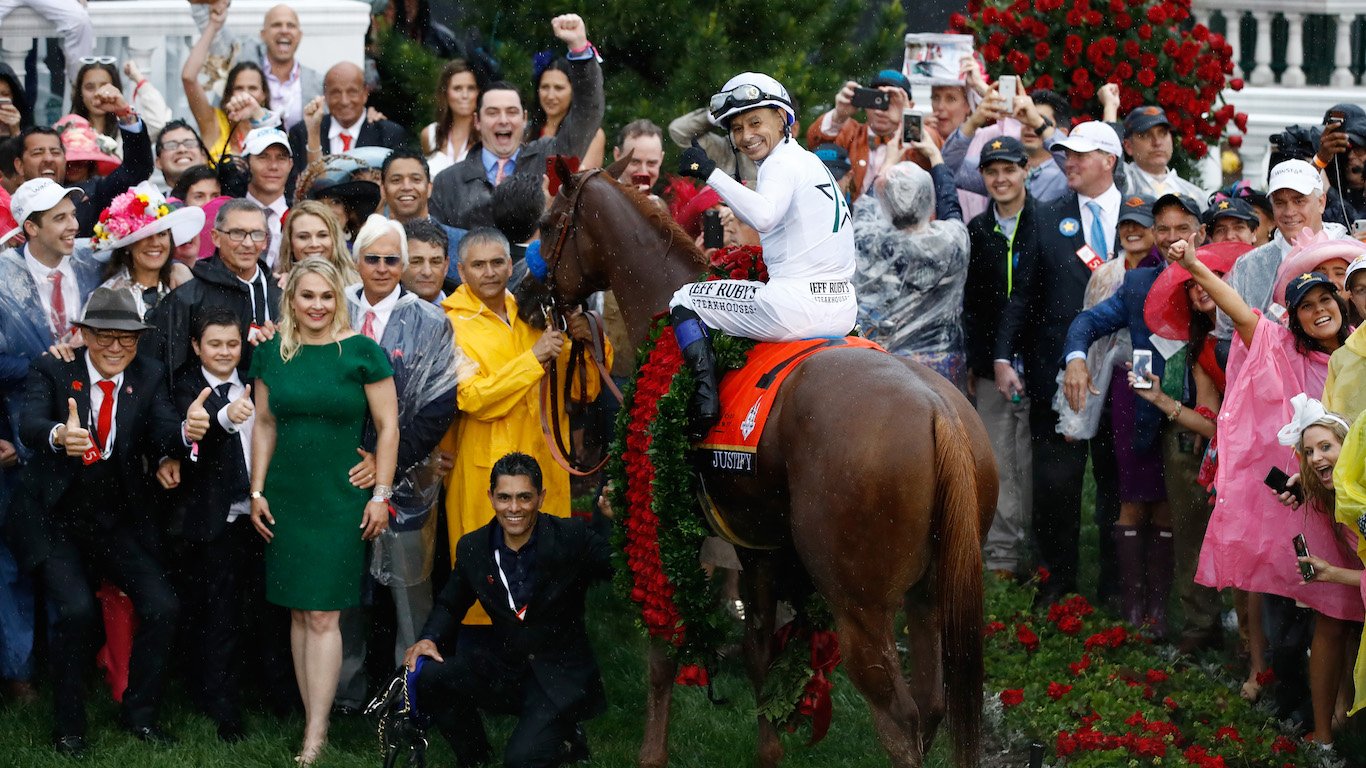
Kentucky
Superstitions are part of sports lore, and horse racing is no exception. At the Kentucky Derby, it’s bad luck for a horse owner to say to his trainer, “see you in the winner’s circle.” You never want to predict your victory.

Louisiana
Louisiana percolates with superstitions and legends, some of which have to do with money. To keep money flowing your way, never eat both ends of a loaf of bread — throw at least one away.

Maine
Dropping bread and butter with the butter side downs brings bad luck. And it’s no longer sanitary to eat.

Maryland
In Maryland, don’t walk backward downstairs because you will curse your parents. But if you walk downstairs backward, carry a mirror, and count each step. By the 13th step — if you haven’t fallen — you will see the reflection of your future husband.

Massachusetts
If you’re in the red financially, that’s usually not a good thing. But in Massachusetts, a door painted bright red keeps evil forces and financial trouble at bay.

Michigan
Here is another new superstition. People have won jackpots buying a Mega Millions’ ticket on Friday the 13th in Michigan. A spokesman for the Michigan Lottery said three players have won a total of more than $155 million playing Mega Millions on Friday the 13th.

Minnesota
Urban dwellers and subway riders detest rats, but not miners. They don’t kill rats because the critters are believed to be sensitive to vibrations, which may indicate a tunnel collapse. If the rats start heading for the surface, miners are advised to do so as well.
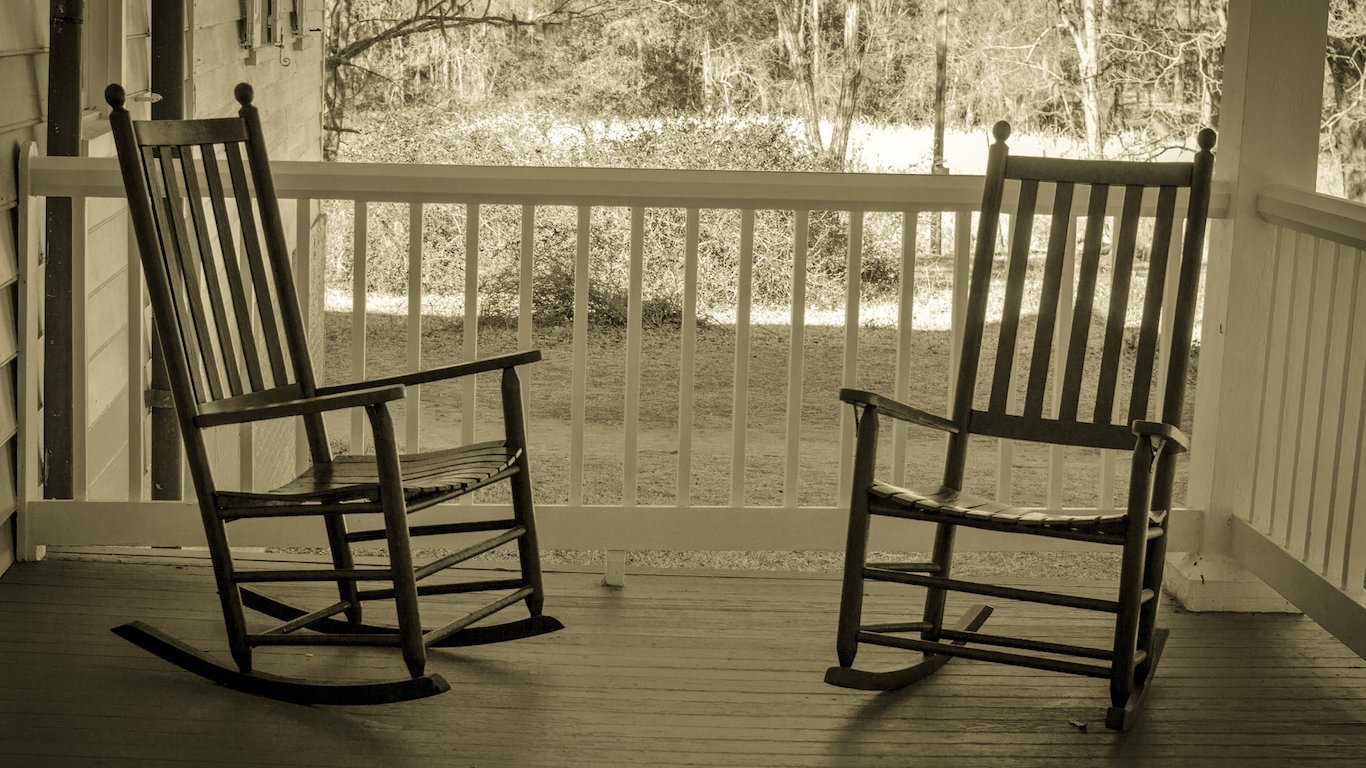
Mississippi
If you let an empty rocking chair keep rocking, you invite evil spirits. Another superstition about empty rocking chairs says you’ll get sick within a year if you get up from a rocking chair and let it keep moving.

Missouri
The Ozarks have provided American culture with a cornucopia of superstitions, such as a thief always looks into their cup before they drinks.

Montana
In Montana, it’s lucky to get up early on New Year’s Day, but if you wash clothes that day, you will wash away a friend.

Nebraska
Be careful where you walk the next time you are in Nebraska. A local superstition holds that when you walk on a new sidewalk for the first time, you should spit on it and make a wish.

Nevada
At Pyramid Lake in Nevada people claim to hear the crying of babies. The legend stems from a story associated with the Paiute people who were said to drown premature or malformed babies because they believed that kept them strong.

New Hampshire
The number 13 has been associated with bad luck for hundreds of years in western culture, and that fear continues to this day. Because of a superstitious state legislator there are no seats labeled 13 in the New Hampshire statehouse. It has been this way at the statehouse since 1958.

New Jersey
Eating lentil soup on New Year’s Eve is good luck for the new year. This superstition has origins in Italian culture. New Jersey has one of the highest percentages of people of Italian heritage in the United States.

New Mexico
Owls are associated with bad omens in many cultures and places. New Mexico is no exception. Witches supposedly take the form of owls in New Mexico, and the hoot of an owl is said to be a bad omen.

New York
If Catholics want to get the best offer on their houses in New York, they should bury a statue of St. Joseph in their front yard. The statue should be buried near the “for sale” sign or close to the road. It should also be buried upside down, facing the house. Sellers should pray to St. Joseph until the house is sold, then unearth the statue and bring it to their new home.

North Carolina
Car trouble is likely to ensue after driving across or under Helen’s Bridge, located at Beaucatcher Mountain in Asheville. People attribute these odd occurrences to the story of a young mother who hanged herself from the bridge after her daughter died in a fire. The mother’s spirit is said to be seeking her daughter at the site.
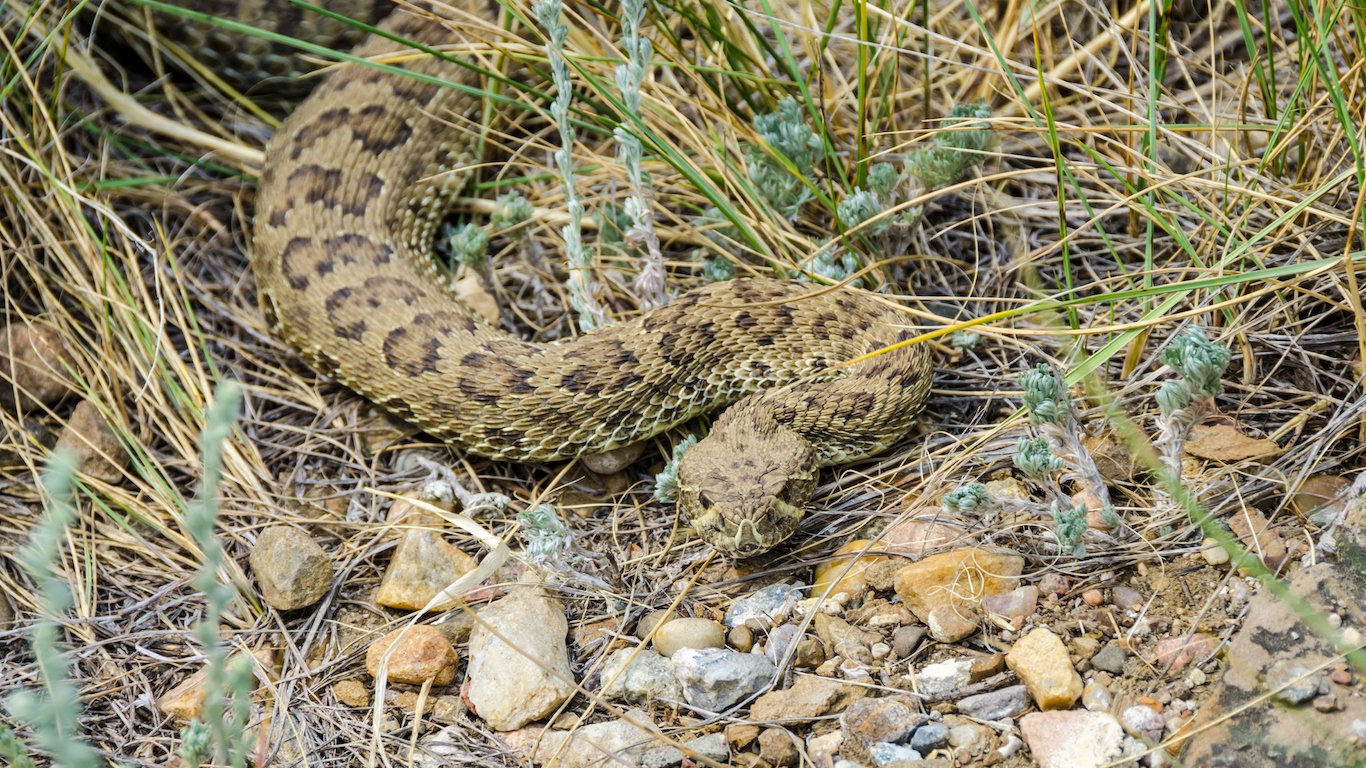
North Dakota
In North Dakota, if you kill a snake, cut its head off, and bury it far from its body to keep it from coming back together.
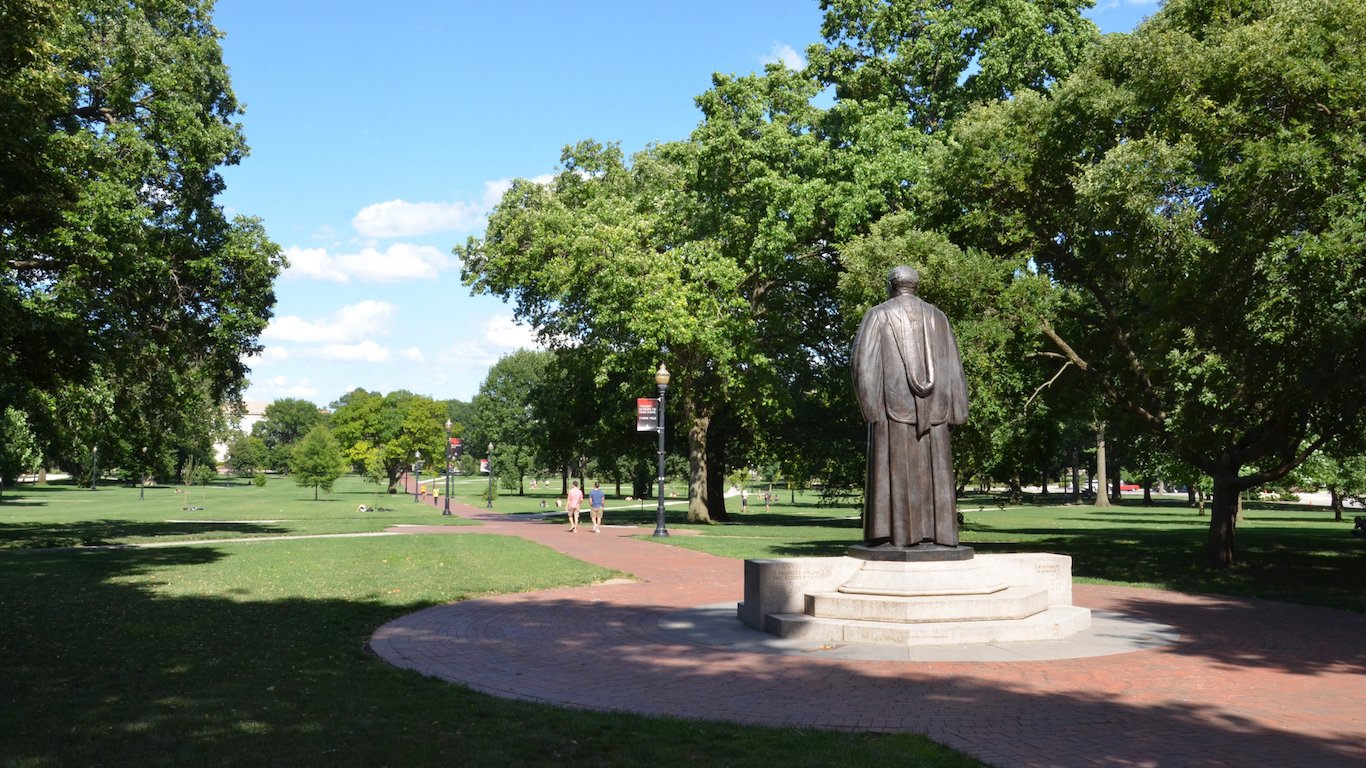
Ohio
One of the more benign superstitions on this list involves Ohio State University. Couples who stroll the Oval, a gathering place at the center of the university, can guarantee they’ll be together forever. But only if certain conditions are met — the chimes from Orton Tower must be pealing, and no one can cross your path.
Oklahoma
The Cherokee believe that the owl is a messenger, and is capable of delivering bad news or bad luck.

Oregon
If you left your house and had to return, it was considered bad luck. To negate this bad luck, you had to sit on your bed for a few minutes.
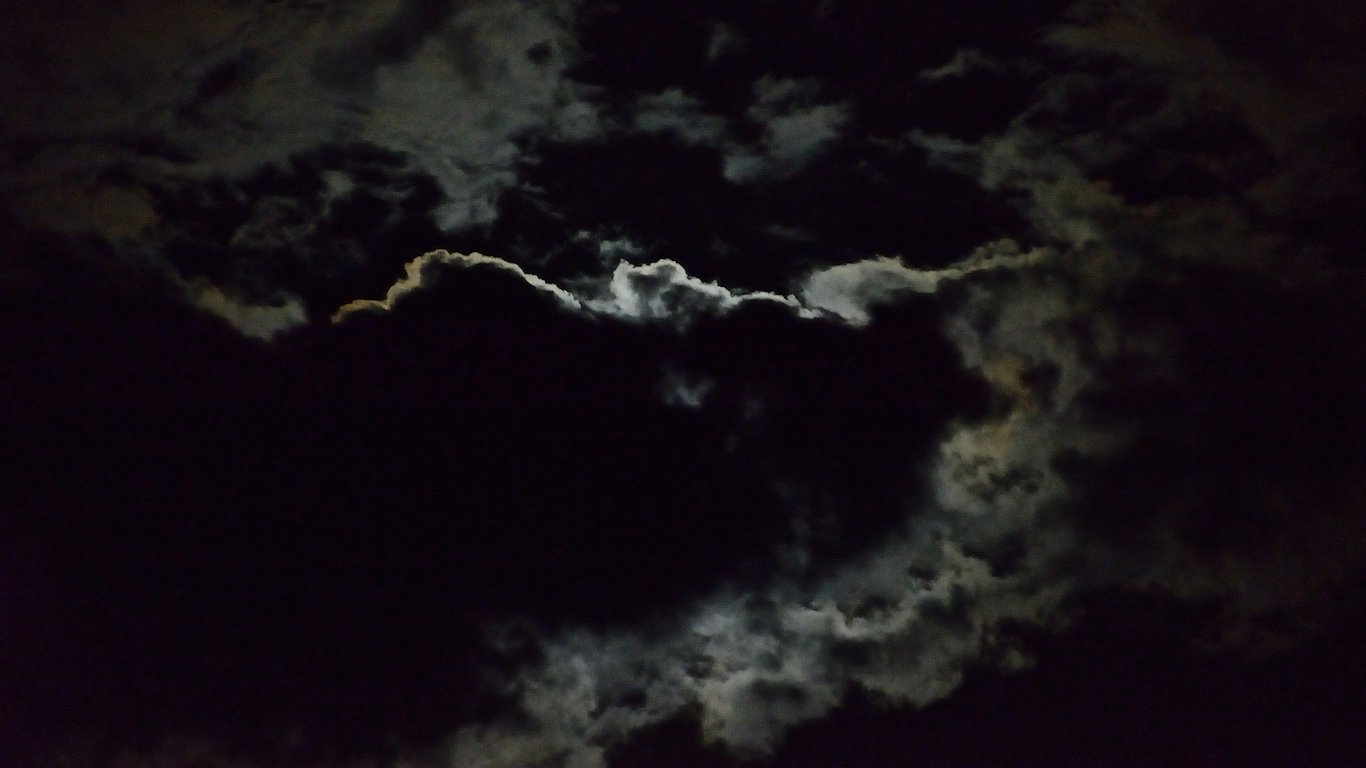
Pennsylvania
Many superstitions center around the moon. The Pennsylvania Dutch believe that if you sweep the house when the moon is obscured you won’t have moths or spiders.

Rhode Island
If you drink from the fountain outside the Providence Athenaeum — a member-supported library — you are guaranteed to return. And if you return to the Athenaeum, look out for Edgar Allan Poe’s ghost. You may find him under the mysteries section.

South Carolina
Weddings are chock full of superstitions. But some bridesmaids might be wary of this one. If you’re a bridesmaid in exactly three weddings, and no more, you’ll never be married.

South Dakota
Omens and superstitions populate Wild West culture. These include the so-called “Dead Man’s Hand” — a pair of black eights, two black aces, and an unspecified fifth card. This is considered an unlucky hand in poker because it was held by lawman and gunslinger Wild Bill Hickok, who was shot dead while playing poker.

Tennessee
Coal mining plays a part in the culture of eastern Tennessee as well as its superstitions. Carrying a piece of coal in your right pocket fights a curse. When the coal has dissolved to crumbs the curse has been lifted.
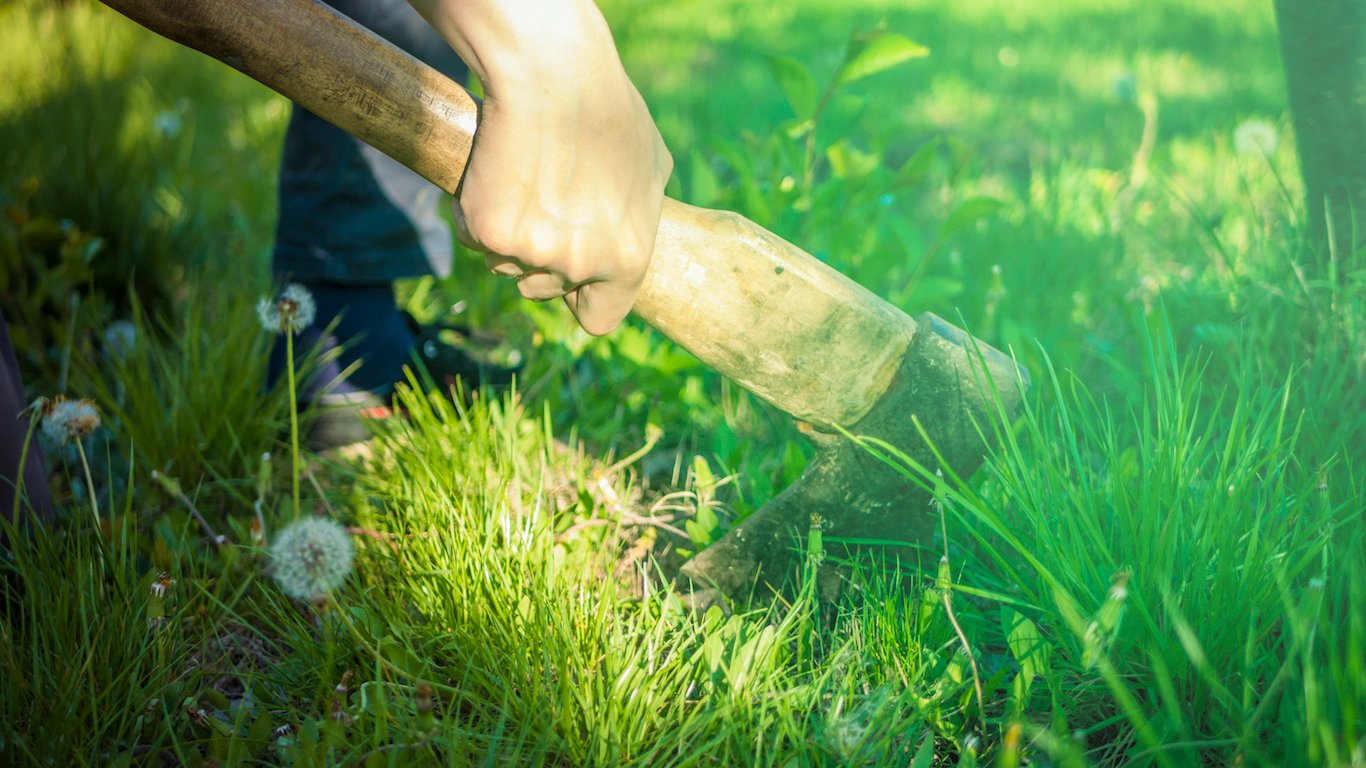
Texas
Stick an axe into the ground to stop thunderstorms. Texans believe that doing so will split a cloud and prevent a deluge.

Utah
Route 666 is known as The Devil’s Highway or Satan’s Highway. The number 666 is the number of “the Beast” and signifies the Antichrist, as noted in the Book of Revelations. Truckers feel uneasy driving this stretch — 85 miles from New Mexico through Colorado and Utah — because many unexplained deaths have happened there.

Vermont
Vermont’s “witch windows” were built on an angle to prevent witches from flying in as a witch cannot fly through a crooked window. Other people believe practical New Englanders angled the windows to bring in more daylight and fresh air into a second-story room.

Virginia
In the Shenandoah Valley people count the number of foggy mornings in August and that is how many winter snows there will be.

Washington
In Washington, Native Americans believe someone who handles a corpse should eat salmon or sturgeon for 30 days after burial to assure prosperity.

West Virginia
The Appalachian region is rich in folklore, legends, and superstitions, many of them from German and Scottish cultures. One superstition is that after someone dies their pictures begin to fade.

Wisconsin
Herring was likely brought to Wisconsin by immigrants from Scandinavian countries. Eating the fish at the stroke of midnight on New Year’s is supposed to bring good luck.

Wyoming
In cowboy superstition, giving someone a knife will sever the relationship between gift-giver and recipient. To offset the misfortune, the receiver should pay for the knife with at least a penny.
Detailed Findings
Many of the superstitions that are part of everyday life — breaking a mirror causes seven years’ bad luck; don’t walk under a ladder; avoiding a black cat — have no particular geographic connection. Some superstitions arise from perilous situations or occupations, such as mining and seafaring.
Superstitions that are associated with a particular state or region often reflect the region’s cultural heritage and the ethnic groups that settled there. Some are stories from Native Americans; products of local sports legends; derived from a geographical anomaly; originate from a tragedy that resonates for generations; or are customs pertaining to holidays such as New Year’s Day.
Not all superstitions are bound by state borders. This is particularly true in regions such as the Appalachian region, which spans areas in Pennsylvania, Tennessee, West Virginia, and Kentucky, as well as the Ozarks, which includes areas in Arkansas, Missouri, Oklahoma, Kansas.
Superstitions in a particular part of the United States might have counterparts in a completely different region. In Colorado, if you kill a toad, your cow will produce bloody milk. There is a similar superstition in North Carolina, except in that state you are discouraged from killing a frog.
While superstitions may be rooted in local legends, folklorists caution about so-called “fakelore” — tales that are created by advertisers. They cite mythological lumberjack Paul Bunyan, who created lakes and rivers in the West, as a device to sell products.
Science and knowledge have provided many answers to questions we have about the nature of things. But we’re still a superstitious people. Many tall buildings do not have a 13th floor. Baseball players refuse to step on the foul line. And don’t you dare step on a crack on the sidewalk, or you will break your mother’s back.
Methodology
To identify every state’s local superstitions, 24/7 Wall St. reviewed sources that include academic journals on folklore obtained from the digital library JSTOR as well as stories reported by local media. A superstition is an irrational or mythological belief and is held by a community over time. Superstitions typically take form as omens of good and bad luck. Superstitions are thought to influence coming events, despite any demonstrable correlation. To be considered for the list, a superstition had to be associated with a particular state or region. In compiling this list, we attempted to inform the reader of the richness of the traditions, folklore, and customs of the diverse ethnic groups in the United States.

